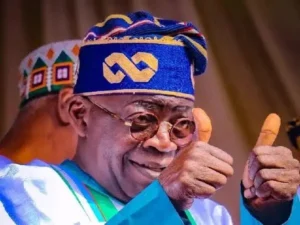President Bola Tinubu has flagged off the 700-kilometer Lagos-Calabar Coastal Highway, a project he described as “a symbol of hope, unity, and prosperity” for Nigeria. The highway, which will traverse nine states along Nigeria’s coastal shoreline, is expected to revolutionize transportation in the country and bolster the unique economic strength of each zone.
Tinubu, who spoke at the flag-off ceremony in Lagos, said the project would provide direct employment for thousands of people and indirect jobs for tens of thousands. He added that it would open economic opportunities for millions of people, fast-track economic development, and provide 30 million people with improved access to production and marketing centers.
The Minister of Works, David Umahi, announced that the president had directed that sections three and four of the Lagos-Calabar Coastal Highway project should commence from Akwa Ibom and Cross River states, respectively. Umahi also disclosed that over 40 new projects were ongoing across the country and all compensations up to kilometer six of the Lagos-Calabar project had been paid.
The Lagos-Calabar Coastal Highway is one of several projects inaugurated by Tinubu as part of activities marking his administration’s first anniversary. The president also virtually flagged off the design and procurement for the 1,000-kilometer Sokoto-Badagry Highway, which is expected to connect Sokoto to Badagry in Lagos State, passing through Kebbi, Niger, Kwara, and Oyo states.

In addition, Tinubu virtually flagged off the design and procurement for the 461-kilometer Enugu-Abakaliki-Ogoja Road, which would traverse Benue, Kogi, and Nasarawa states, and terminate at Apo, in the Federal Capital Territory (FCT). The president also performed the virtual flag-off of the reconstruction and rehabilitation of 330 roads and bridges across the six geo-political zones of the country.
Tinubu inaugurated the newly reconstructed 36.02-kilometer Apapa-Oworonshoki-Ojota-Oshodi Expressway, connecting Nigeria’s premier ports – Apapa and Tin Can Island – to larger parts of Lagos State. The president, who was represented by Senate President, Senator Godswill Akpabio, said the Apapa-Oworonshoki-Ojota Expressway would enhance access to the ports, boost commercial activities, and spur economic development.
The reconstruction of the road was executed in four sections, using Continuously Reinforced Concrete Pavement (CRCP), by Dangote Industries Limited under the tax credit method of infrastructure funding, with Hitech Construction Nigeria Limited as the subcontractor.
The rehabilitated Third Mainland Bridge, the longest of three bridges connecting Lagos Island to the mainland, spans about 11.8 kilometers. It was commissioned by President Shehu Shagari in 1980 and completed by General Ibrahim Babangida in 1990. The bridge recently underwent significant rehabilitation, starting during the days of the Muhammadu Buhari administration, to improve its structural integrity and extend its lifespan.
The flag-off of these projects marks a significant milestone in Tinubu’s administration’s infrastructure development agenda, which aims to improve transportation, boost economic development, and enhance the quality of life for Nigerians.




